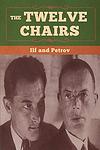The Greatest Soviet, Danish "Satire, Fiction" Books Since 1900
Click to learn how this list is calculated.
This list represents a comprehensive and trusted collection of the greatest books. Developed through a specialized algorithm, it brings together 305 'best of' book lists to form a definitive guide to the world's most acclaimed books. For those interested in how these books are chosen, additional details can be found on the rankings page.
Genres
Satire is a genre of literature that uses humor, irony, and exaggeration to criticize and ridicule human vices, follies, and shortcomings. It is a form of social commentary that aims to expose the flaws and absurdities of society, politics, and culture. Satirical books often employ sarcasm, wit, and parody to challenge the status quo and provoke thought and reflection in readers. Satire can be both entertaining and thought-provoking, and it has been used throughout history as a powerful tool for social and political critique.
Countries
Date Range
Reading Statistics
Click the button below to see how many of these books you've read!
Download
If you're interested in downloading this list as a CSV file for use in a spreadsheet application, you can easily do so by clicking the button below. Please note that to ensure a manageable file size and faster download, the CSV will include details for only the first 500 books.
Download-
1. The Twelve Chairs by Ilya Ilf, Evgeniy Petrov
In this satirical novel, a former nobleman and a con artist form an unlikely partnership in pursuit of hidden treasure. After the Russian Revolution, fortunes are overturned, and the nobleman learns that his family jewels were sewn into one of the twelve chairs from a dining room set. As the chairs have been scattered by the new Soviet regime, the duo embarks on a wild chase across the USSR, encountering a colorful cast of characters and navigating the absurdities of the communist system. Their quest for wealth is a humorous reflection on human greed and the ironies of fate in a society undergoing radical change.
The 1770th Greatest Book of All Time -
2. The Little Golden Calf by Evgeniy Petrov, Ilya Ilf
The book is a satirical novel that follows the adventures of a charming con artist in the Soviet Union during the 1920s. The protagonist, with a combination of wit, luck, and audacity, navigates through the absurdities of the Soviet bureaucracy and the remnants of the pre-revolutionary elite in pursuit of a mythical treasure. His journey is marked by a series of humorous episodes that expose the contradictions and ironies of the early Soviet society, ultimately offering a sharp critique of human greed and the folly of the era's political and social systems.
The 1800th Greatest Book of All Time -
3. Vasili Tyorkin by Alexander Tvardovsky
The book is a classic Soviet-era narrative poem that follows the eponymous character, an everyman soldier, through his experiences on the Eastern Front of World War II. With a blend of humor, pathos, and folk wisdom, the protagonist embodies the resilience and resourcefulness of the Soviet people during the war. Through a series of episodic adventures, the poem paints a vivid picture of life on the front lines, capturing the camaraderie among soldiers, the hardships of battle, and the indomitable spirit of the protagonist as he navigates the brutal realities of war with wit and cunning.
The 3750th Greatest Book of All Time -
4. Sandro of Chegem by Fazil Iskander
The book is a vibrant collection of interconnected stories that revolve around the life of Sandro, a charismatic and witty villager from Chegem in the Caucasus. Through Sandro's adventures and misadventures, the narrative paints a rich tapestry of Soviet-era Abkhazian culture, blending humor, folklore, and social commentary. The tales capture the essence of rural life, the complexities of human nature, and the absurdities of the political landscape, all while celebrating the resilience and spirit of the local people.
The 3751st Greatest Book of All Time -
5. Stolen Spring by Hans Scherfig
"Stolen Spring" is a satirical novel that delves into the oppressive and rigid educational system of a Danish boys' school in the 1930s. Through the eyes of its young protagonists, the narrative critiques the stifling and often absurd academic environment that prioritizes rote learning and strict discipline over genuine intellectual growth and individuality. The story exposes the tragic consequences of such an education on the spirits and lives of the students, highlighting the loss of youth and potential as the system fails to nurture or understand the needs of its pupils.
The 4922nd Greatest Book of All Time
Reading Statistics
Click the button below to see how many of these books you've read!
Download
If you're interested in downloading this list as a CSV file for use in a spreadsheet application, you can easily do so by clicking the button below. Please note that to ensure a manageable file size and faster download, the CSV will include details for only the first 500 books.
Download



